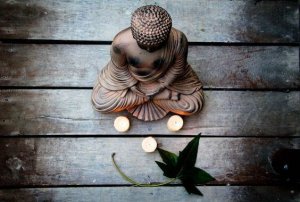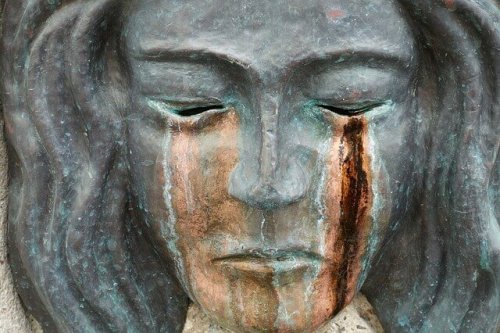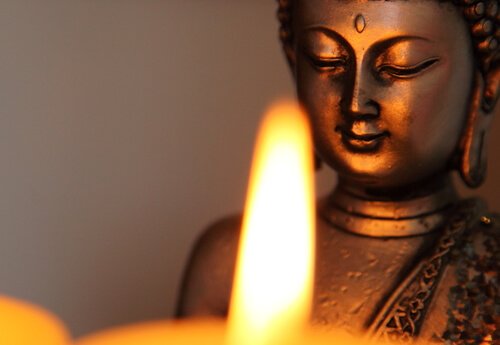How to Deal with Fear According to Buddhism

According to Buddhism, dealing with fear involves dealing with your perceptions. In fact, this philosophy defines fear as an error in perception. Fear stems from fantastical and terrible images that end up taking over your mind.
Buddhism also argues that fear finds its most fertile grounds in those people who lack love. Bitterness, envy, and selfishness are harmful ways of relating to others. Such emotions are the seeds of conflict.
“Better than a thousand hollow words, is one word that brings peace.”
-Buddha-
In general terms, Buddhists believe that the best way to deal with fear is to focus completely on the present and live with compassion. This will lead you to feel stronger. As such, there’ll be less room for fear. Let’s delve deeper into this.
Fear and rejecting suffering
Buddhists say that the fundamental essence of fear is a feeling of rejection toward suffering. They also assert that pain is inevitable, but suffering is optional. The former is related to how you understand fear. The latter is related to the way in which you handle it.
Fear of suffering comes from a rejection of displeasing sensations that arise from losses, conflicts, and a difference between your desires and the reality you live. On the other hand, you don’t necessarily have to suffer because of pain. Suffering is just one of the many responses that are available to you.
We assume, to our own detriment, that pain is going to harm us. But things don’t have to be that way. In order to be successful at dealing with fear, you also have to know how to deal with pain. Pain loses a lot of its power when you learn to accept it. And it loses even more power when you seek to understand what you can learn from it.

If dealing with fear is your goal, focus on the now
In some way or another, fear is linked to the past or to the future. It’s linked to the past when you dwell on the experience that scared you and scarred you. You’re afraid that the same thing is going to happen to you again.
Fear is linked to the future because sometimes you imagine or suppose your future will bring difficulties or painful situations. Your future makes you feel small and that scares you.
That’s why Buddhism insists that one of the best ways of dealing with fear is focusing on the present, the here and now. Directing your attention toward that keeps your mind from filling itself with fantasies that only feed unnecessary fears.
Attachment is a source of fear
Mental and spiritual peace are polar opposites of attachment. It’s very difficult for most people to understand this because they’re only focused on attaining things. By this, we’re not just talking about material possessions, but also emotional or spiritual “goods”. It even includes “having” love, “getting” peace, etc.
Buddhism states that we should stop trying to have things. In other words, we have to try to become detached. Buddhism teaches that nothing belongs to us, not even our own lives. Everything that comes into your life, and even everything you are, is nothing more than a fleeting reality.
When you don’t understand this, attachment arises in your life. And with attachment comes the fear of loss. This is one of the strongest fears because it turns into a vicious cycle. The more you’re attached to something, the more fear you feel about losing it. And the more fearful you feel, the more you become attached to that thing. Allowing what is and accepting that everything is temporary will help you deal with fear.

Escaping is never an option
For Buddhism, we make mistakes to learn from them. When you only dwell on your mistakes, you feed your fear and anxiety. When you make a mistake and don’t learn from it, the situation that made you make said mistake will probably repeat itself.
All of these Buddhist principles for dealing with fear are complicated. However, you can learn them with patience and persistence. In many ways, they clash with Western society’s values and that’s why they’re not easy to adopt for many people. Nevertheless, if you frequently feel fear, it might be a good idea to research them further.
All cited sources were thoroughly reviewed by our team to ensure their quality, reliability, currency, and validity. The bibliography of this article was considered reliable and of academic or scientific accuracy.
- Uhlig, H. (2005). Buda y Jesús: los vencedores del miedo. Ellago.
This text is provided for informational purposes only and does not replace consultation with a professional. If in doubt, consult your specialist.








